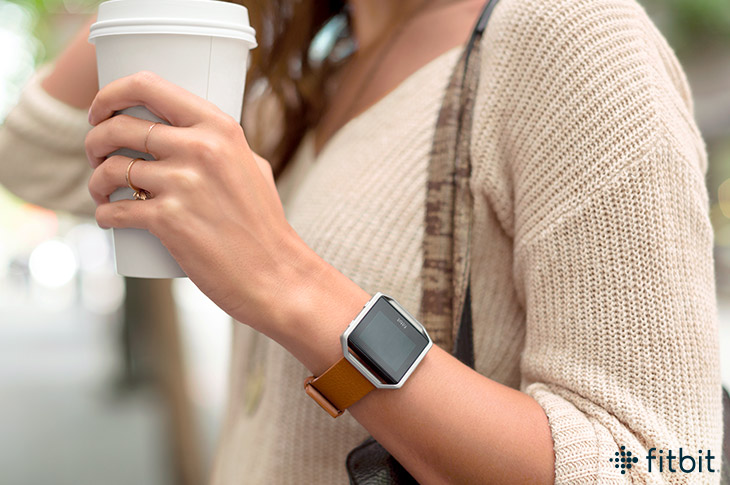
Whether you are a fan of your local cafe or prefer to brew your own Joe, you probably can’t imagine life without a cup of coffee. (Or, if you’re like most people, possibly a few cups!) Unfortunately, the buzz that helps you power through your day may actually be making you more tired. How? If drinking coffee during the day keeps you up at night, then you’ll wake up feeling weary. As a result, you may guzzle even more caffeine, which makes it harder to sleep or do so restfully and, well, you get the point. The “caffeine-disrupted sleep-I’m exhausted” cycle begins! Here, what you need to know about caffeine and sleep.
Caffeine Can Last
As the day goes on, a naturally-occurring molecule called adenosine accumulates in your body while you’re awake. It then inhibits your central nervous system, leaving you feeling tired by the end of the day. But caffeine prevents the production of this chemical so that you’re wide-eyed when it’s time for bed. This is why that afternoon cup can affect the sleep you try to get six hours or more after you consume it. “The half life of caffeine is close to six hours,” explains Michael T. Smith, PhD., director of the Center for Behavior and Health at Johns Hopkins University School of Medicine. “So if you have 200 mg of caffeine at 4 pm you will still have about 100 mg in your system at 10 PM.”
Tea Isn’t All It’s Cracked Up to Be
This traditionally English drink may seem like a milder version of a rich cup of coffee, but that depends. Although most teas have fewer calories than coffee drinks that are loaded with sugar, milk and other ingredients, some have enough caffeine to keep you wide-eyed. Herbal teas are generally fine, but black teas—like Early Gray and English Breakfast—and even green tea do contain caffeine so take note if you’re sipping these drinks. (Several brands of tea actually list their caffeine levels on the package so take a look.)
Not Everyone is Sensitive to Caffeine
How can your best friend drink lattes late into the afternoon, while just a few sips after lunch keep you up at night? Caffeine’s negative impact on sleep “depends on how much you take, how sensitive you are and how late you typically go to sleep,” says Smith. There is no simple test to see if you are sensitive to caffeine or not, but you can experiment. If you are having trouble falling asleep, eliminate all caffeine in the afternoon. If things get better, then you have your answer. If not, then caffeine might not be your sleep problem. In general, avoid caffeine within 6 hours of sleep and if you’re sensitive to it, avoid decaf, too. (Decaf brews can still contain anywhere between 2 mg and 15 mg of caffeine on average.)
Your Snacks Count, Too
Some of your favorite afternoon snacks may also contain caffeine. This includes chocolate and coffee-flavored yogurt. The good news? In all but the most extreme cases, there is not nearly enough caffeine in chocolate to have a measurable effect on sleep, unless you are highly sensitive. Whew! However, coffee-flavored ice cream and yogurt may have almost as much caffeine as coffee so, if possible, check the container to see if it lists caffeine.
Energy Drinks Have a Downside
Although soda can contain caffeine and may affect your sleep, energy drinks often contain even more—sometimes two or three times as much caffeine as a cup of coffee or cola. As a result, the time of day when you drink these beverages is key. Too late in the day and you’ll be revved up when you’re supposed to be winding down for bedtime.
This information is for educational purposes only and is not intended as a substitute for medical diagnosis or treatment. You should not use this information to diagnose or treat a health problem or condition. Always check with your doctor before changing your diet, altering your sleep habits, taking supplements, or starting a new fitness routine.

Being a naturally bouncy person full of energy, I do not touch caffeinated coffee or tea. If I am given a ordinary coffee with caffeine in my hands start to shake within a few minutes and then I get a headache. I suggest if anyone suffers from bad sleep patterns or anxiety to stay clear of caffeine . All the best.
Falling asleep is not a problem for me. Intermittent wakings with difficulty going back to sleep are my problem. No alcohol is involved. Any suggestions?
I too have this same problem but I do have 2 glasses of wine in the evening. I wake up 2 times to use the restroom & then it is difficult to calm my mind & get back to .
I sleep between 6pm and 9pm often and my fit bit doesn’t show it
I must admit I love my coffee, I have recently began a weight loss program of my own making and at present have lost 4st although I sleep much better than I did at my previous weight of 17st I find if I have coffee in the evening I must make my last about 3pm or 1. I can’t sleep at all and 2. It affected my sleep cycle the rest of the week
My sleep has decreased the last six months because I was working full time ! I cannot get 6 hours of sleep any more ! I try going to sleep same time but that did not work either !
I find as long as I don’t have any after 3 I’m fine and in the evening I have decaf green tea and it seems fine
Sorry forgot but my energy for the afternoon is 6 almonds and a glass of 1percent milk , it makes me feel full too until supper
It’s Earl Grey not Early Gray.
I believe I’m getting sufficient sleep, but every morning I’m so tired. I perk up come 1:00 pm. Can’t figure it out? I go to bed and wake up about the same time each day. Any suggestions?
Did you check your Fitbit to see how many hours you actually sleep each day and are awake? It is possible that you do not have quality sleep.
Is decafe coffee ok to drink in the evening
I have been told by my PCP that I cannot have any caffeine because I have a rapid heart rate. So I avoid caffeine in anything.